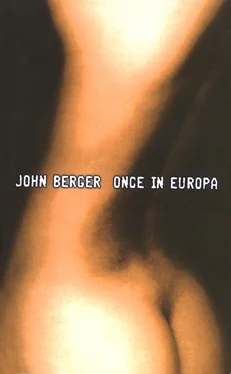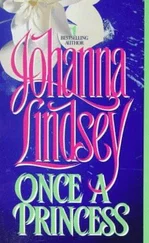John Berger - Once in Europa
Здесь есть возможность читать онлайн «John Berger - Once in Europa» весь текст электронной книги совершенно бесплатно (целиком полную версию без сокращений). В некоторых случаях можно слушать аудио, скачать через торрент в формате fb2 и присутствует краткое содержание. Год выпуска: 2014, Издательство: Bloomsbury Publishing, Жанр: Современная проза, на английском языке. Описание произведения, (предисловие) а так же отзывы посетителей доступны на портале библиотеки ЛибКат.
- Название:Once in Europa
- Автор:
- Издательство:Bloomsbury Publishing
- Жанр:
- Год:2014
- ISBN:нет данных
- Рейтинг книги:3 / 5. Голосов: 1
-
Избранное:Добавить в избранное
- Отзывы:
-
Ваша оценка:
- 60
- 1
- 2
- 3
- 4
- 5
Once in Europa: краткое содержание, описание и аннотация
Предлагаем к чтению аннотацию, описание, краткое содержание или предисловие (зависит от того, что написал сам автор книги «Once in Europa»). Если вы не нашли необходимую информацию о книге — напишите в комментариях, мы постараемся отыскать её.
Once in Europa — читать онлайн бесплатно полную книгу (весь текст) целиком
Ниже представлен текст книги, разбитый по страницам. Система сохранения места последней прочитанной страницы, позволяет с удобством читать онлайн бесплатно книгу «Once in Europa», без необходимости каждый раз заново искать на чём Вы остановились. Поставьте закладку, и сможете в любой момент перейти на страницу, на которой закончили чтение.
Интервал:
Закладка:
Michel keeps figures in his head like other people keep the words of songs.
It’s raining kisses
and hailing caresses
till the flood of tenderness
takes the nest.
A man on one of their furnaces, he said, breathes air that contains four hundred thousand dust particles per litre — that’s lethal.
May a mouthful of this on your night shift my darling keep you company between the hot and the cold …
Lethal. No man can stand it indefinitely, Michel said. The forest is dying. The five chimneys spew out one thousand two hundred tons of fluorine waste every year.
Papa had been right about the venom. He had been right too about my being married at seventeen. What he never knew, what he could never have imagined, was that I’d be a widow by eighteen.
A TPI factory in the Pyrenees, Michel went on, has destroyed four thousand hectares of forest in three years and poisoned seven hundred and fifty cows and sheep.
What I’ve lost is more than seven hundred and fifty cows and sheep! I said.
You have a child. It helps.
It helps, yes, but a son doesn’t make up for everything. One day he’ll go.
At least you have somebody to live for.
Sometimes, I shouted, you want to live for yourself!
We each have to live for ourselves, he said.
Sometimes I look at other women and I hate them because they’re, because they’re …
Not living with a ghost?
I’m getting out, let me get out.
You have nothing to be angry about.
Nobody has the right to call him a ghost. Do you hear me, Michel? Nobody. He’s here! I beat my hand on my breast.
And I’m here, Michel said banging his hands down on the steering wheel, I’m here and I have no child so I know what I’m saying when I tell you you’re lucky.
Lucky? Me lucky! I’m about as lucky as you, my dear Michel.
He said nothing more. We were driving between hills of grass which rose to outcrops of rock. The sky was thundery. The cows were clustered together, heads down, wherever there was a little shade. We were both sweating and hot.
If you see a river, I said, why don’t you stop? Then I remembered it would be hard for him to clamber down a riverbank and I regretted saying it. Can you still have children? I asked him after five minutes’ silence.
He nodded without a word.
Around the next corner was a café and we stopped. We were waiting for the sandwich we had ordered when we heard a screeching of brakes followed by a crash. I rushed to the café door. A Peugeot 304, coming too fast round the bend, had crashed into the back of our Renault. The driver, unhurt, was waving his arms and cursing everything he could see. In God’s name, it’s not possible! No warning for the bend! How is it possible to build such a fool road? And to park a car there you need the mind of a cunt! It’s not possible, Jesus, I’m telling you it’s not possible!
Michel walked over to his car and bent stiffly forward from the waist; he was like the conductor of a brass band after the end of a number, and he examined the damage. The other driver was pacing out the distance from the two cars to the corner and counting out loud in a shrill, mad voice. He had a way of looking at things, Michel — shafts, flanges, joints, cylinder heads, casings — which stopped them being intransigent, which made them obedient. As I watched him I thought of his gift of taking away the pain of burns. Was it a gift of attracting to himself and so dispersing a kind of shock? The shock suffered by burnt flesh or a chassis?
If we order the parts tonight, he shouted to me, it’s only one day’s work, we’ll be on the road the day after tomorrow.
Swaying like a ninepin, he moved across to the Peugeot. The owner screamed: It’s not possible! Less than twenty-eight metres from the corner, you can see my brake marks, can’t you? Jesus! I jammed them on as soon as I saw you. You’re a public danger. If you’re a gimp you should get yourself about in a wheelchair.
I reckon, said Michel very calmly, the packet there won’t cost you more than a hundred and fifty thousand — the price of a good bicycle! You’re fortunate, considering the speed you were going.
Crippled cunt! the man said.
The storm hadn’t broken and we had to wait for the café owner to drive us to the nearest hotel, five kilometres away.
Give us some cold beer, can you? Michel asked. The sweat lined the furrows of his brow and the pouches under his eyes. He sat on a table, his back to the wall, legs straight out, pointed polished shoes at an impossible angle, as if both ankles were broken.
On a day like this, he said to me, when you’re working on the furnaces, you’re working in a temperature of seventy degrees centigrade. Half-way between blood-heat and boiling point. Halfway to hell … He poured some beer down his throat.
I could never believe in hell, I told him. I couldn’t believe any father would invent hell as a punishment for his children.
Fathers shoot their sons dead, he said.
They shoot in anger. The way I learnt, hell has to do with justice, not anger.
I offered him a handkerchief to wipe his face. He held it up before his eyes because it had flowers printed on it, and he didn’t use it.
You really want to know about hell, he said smiling, it’s here.
Sounds odd coming from you, Michel, the one who’s always talking about change and progress …
I put the handkerchief carefully back in my bag.
Who says hell has to stay the same? Hell begins with hope. If we didn’t have any hopes we wouldn’t suffer. We’d be like those rocks against the sky.
I caught hold of the hand he was pointing with. He didn’t resist and I turned it over. On the back of his fingers he has black hairs; where the violet scar is, there is no hair. I sprayed some eau de cologne onto his wrist and he withdrew his hand to smell it.
Hell begins with the idea that things can be made better, he said. It’s refreshing — your scent. What’s the opposite of hell? Paradise, no?
Give me your other hand.
I sprayed the back of that hand and he didn’t withdraw it, it lay in my lap.
I could take you to your hotel now, announced the café owner.
The hotel backed onto a river whose bed was almost dry. The window of my room looked out onto the pebbles. It was the first time in my life I’d stayed in a hotel — which didn’t prevent my realising this one was unusual. The proprietor, who was working in the kitchen when we arrived, came out wiping his hands on a sack tied round his waist.
Two rooms, yes, he said, you’ll be eating here tonight? Tonight I’m cooking a dish I’ve never tried before!
The corridor leading to the bedrooms was stacked with wardrobes, there was scarcely space to get by. In my room, besides a bed and a washbasin there were two electric radiators and a deep freeze. I looked inside the freezer and it was full of meat. At last the rain began to fall, large drops the size of pearls. I washed and lay on the bed in my slip, with my feet bare.
I had the impression that we had lost our way: we were not going to arrive in Paris, Michel’s prosthesis was not going to be adjusted, we were in a land apart, which we had come across by accident, without meaning to, and without realising it, until now we had found ourselves in a hotel run by a madman. With this idea, and yet peacefully and to the sound of the rain, I fell asleep.
When I woke up the storm had passed. I put on another dress and a pair of white shoes — the pair which had prompted me to buy the summer gloves. I also put on a necklace of coloured beads that Christian had made for me at school. It was getting dark — the short days of August for all their heat — and I could just make out the white shapes of geese down by the river. I slipped past the wardrobes and found my way downstairs.
Читать дальшеИнтервал:
Закладка:
Похожие книги на «Once in Europa»
Представляем Вашему вниманию похожие книги на «Once in Europa» списком для выбора. Мы отобрали схожую по названию и смыслу литературу в надежде предоставить читателям больше вариантов отыскать новые, интересные, ещё непрочитанные произведения.
Обсуждение, отзывы о книге «Once in Europa» и просто собственные мнения читателей. Оставьте ваши комментарии, напишите, что Вы думаете о произведении, его смысле или главных героях. Укажите что конкретно понравилось, а что нет, и почему Вы так считаете.












